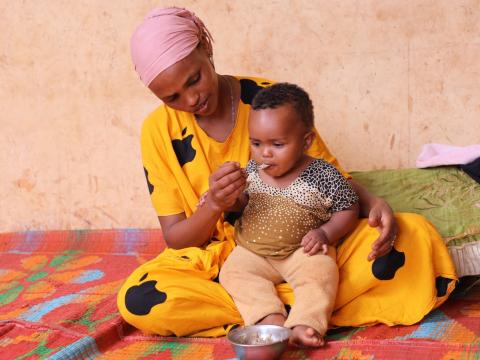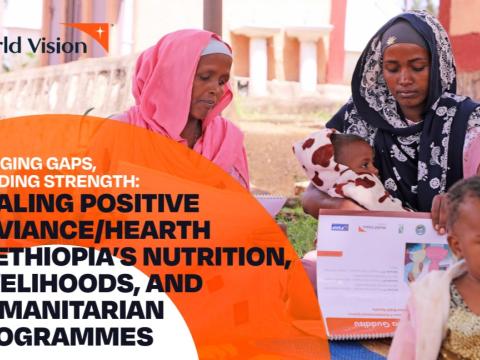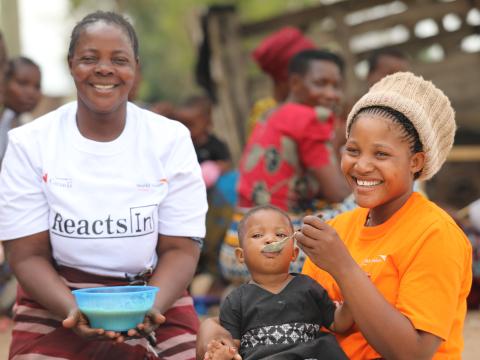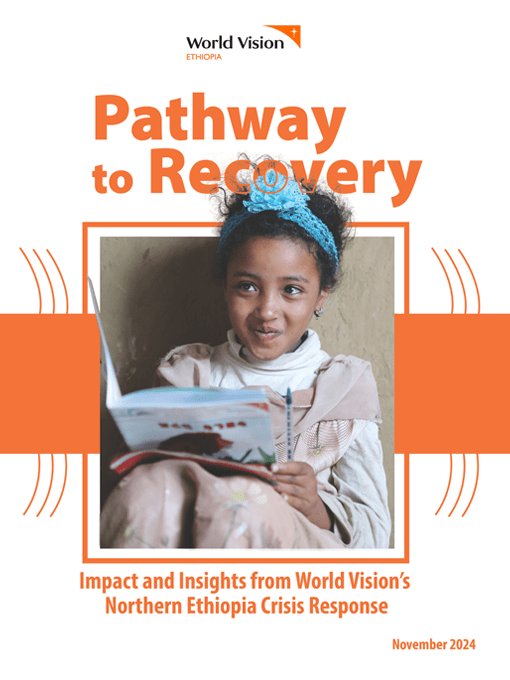Case Study of World Vision Ethiopia Accountability Initiative
Download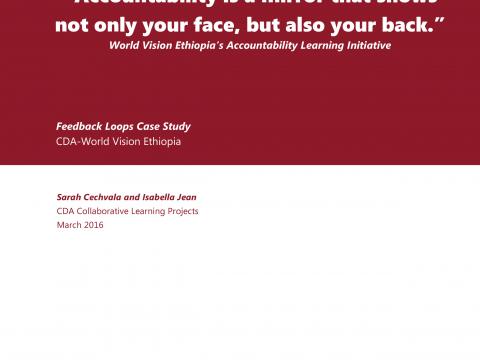
This case study is a result of a learning partnership between CDA, World Vision UK (WV UK), and World Vision Ethiopia (WVE). It documents WVE’s experience integrating accountability and feedback loops into long-term development programs. World Vision and CDA collaboratively seek to document emerging lessons on feedback utilization in organizational decision-making, course correction, and program review and redesign. The primary focus of this case is to document lessons learned during WVE’s pilot of the Accountability Learning Initiative (ALI) project.
The ALI project is a WV UK-funded initiative, which provides funding to several country offices (Pakistan, Nepal, Somalia, and Ethiopia) to examine and improve existing accountability practices in their development programming in order to enhance or improve such practices. In this case study, the term ALI refers only to the two pilots that were observed in two WVE field offices in the Amhara region of Ethiopia.
World Vision Ethiopia collects and uses feedback in both development and humanitarian programs. Globally, World Vision’s Programme Accountability Framework (PAF) sets the direction for organizational accountability to the children and communities with whom WV works and outlines WV’s commitments to accountability as a minimum set of standards and criteria during project implementation.
